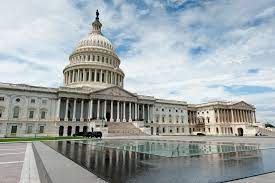Gregory E. Wannier
Deputy Director and Fellow
Responding to widespread frustration with gridlock in the United States Senate, Sen. Mark Udall (D-CO) introduced a Senate Resolution on September 30 that proposed a series of rule changes designed to reform, but not eliminate, the use of the filibuster in Senate proceedings. Udall wrote this proposal in conjunction with Norm Ornstein of the conservative think tank American Enterprise Institute, a notable critic of gridlock in the Senate.[1] If implemented, it could seriously affect prospects for climate legislation in the next couple of years.
The proposal came after a week in which Republicans filibustered three times to block votes on a variety of legislation.[2] It also came just one day after the two senators from Vermont, Patrick Leahy (D-VT) and Bernie Sanders (I-VT, caucuses with Democrats) expressed support, in principal, to a reform of the filibuster.[3]
Majority parties’ frustration with the filibuster arises at least partly from a dramatic upturn in filibusters in recent years. Delaying tactics are a common part of any legislative body – indeed, until the turn of the 20th century, the House more commonly used delay tactics than the Senate[4] – but starting with Civil Rights debates in the 1960’s, the filibuster has become increasingly prominent. Evidence here comes from the number of votes for cloture. A successful vote for cloture, based on Rule 29 of Senate Procedure, allows the Senate to end debate on a bill. During the 1960’s the chamber averaged three cloture votes a year. By this most recent Congress that number had jumped to over two cloture votes per week, a 35-fold increase.[5] This increase can be partially attributed to repeated attempts to end filibusters, but the largest reason has been a shift in the culture around filibustering in the Senate.
In 1960, after a failed attempt to outwait those trying to table a 1960 Civil Rights bill, incoming majority leader Mike Mansfield advocated for cloture as a way to end a filibuster. This was used to pass the 1964 Civil Rights Act, and prompted the modern use of cloture as a political tool.[6] However, after the Senate reduced the threshold requirement for cloture from 2/3 to 3/5 of Senators, cloture votes increased significantly, and so did the mainstream acceptability of filibusters. Since then, minority parties have continually expanded their use of the filibuster to hinder passage of legislation.[7]
Udall’s proposal does not deviate from the modern-day conception of the filibuster – it still sees a strong role for the filibuster, and endorses cloture as the accepted way to defeat a filibuster. However, it suggests three major changes to the filibuster rules, all of which are designed to streamline Senate proceedings without taking away the rights of the minority party to influence legislation. First, it would change the requirement for cloture to 3/5 of Senators “present and voting,” instead of the current rule, which requires 3/5 of all Senators, or 60 votes in all cases. According to Sen. Udall, this would “level the playing field” by forcing the minority to participate in the debate and cloture votes, which does not currently happen. Second, it would only allow one filibuster per bill, on the final vote, thus eliminating filibusters for motions to proceed, moving to conference, and post-conference passage of bills. This would still allow minorities to block a bill, but eliminate excessive stalling tactics after the votes for cloture have been found. And finally, it would reduce the pre- and post- cloture debating time, which currently adds three days to passage time even if cloture is reached.[8]
In a move perhaps to appease Republicans (as the current minority party), the proposal would also allow the Senate to force consideration of any amendment by majority vote, against the wishes of Senate leadership. This would allow coalitions between minority-party and dissenting majority-party senators to force consideration of certain amendments.
The proposal also makes two changes to Senate procedure that Sen. Udall feels needlessly delay Senate activity. It would eliminate a requirement that Senate committees get consent from the Senate to meet after morning hours and prevent a Senator from forcing an in-chamber reading of an entire amendment unless it was not available beforehand.[9]
To pass, this proposal will likely require at least one Republican co-sponsor to overcome the filibuster Republicans are almost certain to mount. This may be almost impossible because of the political ramifications of this bill. In the context of climate change, the first part of the proposal would allow wavering Senators to abstain on a cloture motion, thereby reducing its threshold requirement without going on record for or against the bill. Also, a minority filibuster would require the vote of every member to sustain, making it politically and practically more difficult to maintain.
Senator and Chairman of the Energy and Natural Resources Committee Jeff Bingaman (D-NM) has stated that comprehensive climate legislation is unlikely before 2013,[10] particularly if Republicans gain a majority in the House. However, filibuster reform could still improve future prospects for climate legislation by making it less prone to minority obstruction in the future.
[1] Udall Plan Would Limit Senate Filibustering, https://www.denverpost.com/politics/ci_16210555; see also Norman Ornstein, “A Filibuster Fix,” N.Y. Times (Aug. 28, 2010).
[2] The three filibusters were used “to block debate over a campaign finance reform bill, on legislation to end ‘the don’t ask -don’t tell rule’ concerning gay[ lesbian, or bisexual service members] in the military and on an overseas jobs bill.” Leahy, Sanders Push for Reform of Senate Filibuster Rules, https://www.vpr.net/news_detail/88891.
[3] Id.
[4] Gregory Koger, Filibustering: A Political History of Obstruction in the House and Senate 44 (University of Chicago Press, 2010)
[5] Ornstein, Supra note 1.
[6] For more information on this rise, see Koger, supra note 4, at 99-133.
[7] Id. at 147-88.
[8] Udall Offers Common-Sense Proposal to Improve Bipartisan Cooperation in the Senate, https://markudall.senate.gov/?p=press_release&id=777.
[9] Id.
[10] Bingaman Calls Broad Climate Bills Dead in the Next Congress, https://thehill.com/blogs/e2-wire/677-e2-wire/120357-bingaman-calls-broad-climate-bills-dead-in-the-next-congress.


